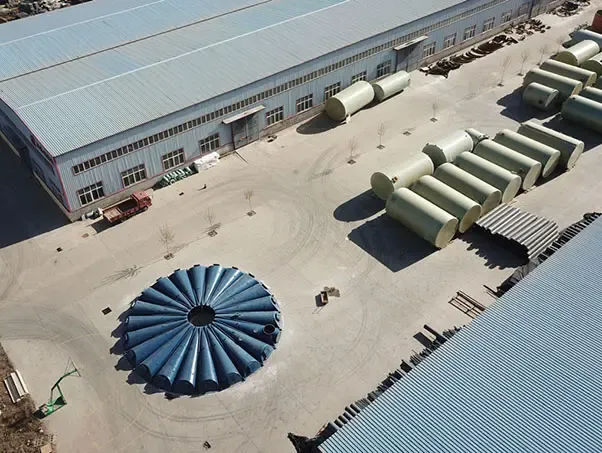
-
 Afrikaans
Afrikaans -
 Albanian
Albanian -
 Amharic
Amharic -
 Arabic
Arabic -
 Armenian
Armenian -
 Azerbaijani
Azerbaijani -
 Basque
Basque -
 Belarusian
Belarusian -
 Bengali
Bengali -
 Bosnian
Bosnian -
 Bulgarian
Bulgarian -
 Catalan
Catalan -
 Cebuano
Cebuano -
 China
China -
 China (Taiwan)
China (Taiwan) -
 Corsican
Corsican -
 Croatian
Croatian -
 Czech
Czech -
 Danish
Danish -
 Dutch
Dutch -
 English
English -
 Esperanto
Esperanto -
 Estonian
Estonian -
 Finnish
Finnish -
 French
French -
 Frisian
Frisian -
 Galician
Galician -
 Georgian
Georgian -
 German
German -
 Greek
Greek -
 Gujarati
Gujarati -
 Haitian Creole
Haitian Creole -
 hausa
hausa -
 hawaiian
hawaiian -
 Hebrew
Hebrew -
 Hindi
Hindi -
 Miao
Miao -
 Hungarian
Hungarian -
 Icelandic
Icelandic -
 igbo
igbo -
 Indonesian
Indonesian -
 irish
irish -
 Italian
Italian -
 Japanese
Japanese -
 Javanese
Javanese -
 Kannada
Kannada -
 kazakh
kazakh -
 Khmer
Khmer -
 Rwandese
Rwandese -
 Korean
Korean -
 Kurdish
Kurdish -
 Kyrgyz
Kyrgyz -
 Lao
Lao -
 Latin
Latin -
 Latvian
Latvian -
 Lithuanian
Lithuanian -
 Luxembourgish
Luxembourgish -
 Macedonian
Macedonian -
 Malgashi
Malgashi -
 Malay
Malay -
 Malayalam
Malayalam -
 Maltese
Maltese -
 Maori
Maori -
 Marathi
Marathi -
 Mongolian
Mongolian -
 Myanmar
Myanmar -
 Nepali
Nepali -
 Norwegian
Norwegian -
 Norwegian
Norwegian -
 Occitan
Occitan -
 Pashto
Pashto -
 Persian
Persian -
 Polish
Polish -
 Portuguese
Portuguese -
 Punjabi
Punjabi -
 Romanian
Romanian -
 Russian
Russian -
 Samoan
Samoan -
 Scottish Gaelic
Scottish Gaelic -
 Serbian
Serbian -
 Sesotho
Sesotho -
 Shona
Shona -
 Sindhi
Sindhi -
 Sinhala
Sinhala -
 Slovak
Slovak -
 Slovenian
Slovenian -
 Somali
Somali -
 Spanish
Spanish -
 Sundanese
Sundanese -
 Swahili
Swahili -
 Swedish
Swedish -
 Tagalog
Tagalog -
 Tajik
Tajik -
 Tamil
Tamil -
 Tatar
Tatar -
 Telugu
Telugu -
 Thai
Thai -
 Turkish
Turkish -
 Turkmen
Turkmen -
 Ukrainian
Ukrainian -
 Urdu
Urdu -
 Uighur
Uighur -
 Uzbek
Uzbek -
 Vietnamese
Vietnamese -
 Welsh
Welsh -
 Bantu
Bantu -
 Yiddish
Yiddish -
 Yoruba
Yoruba -
 Zulu
Zulu
frp pipeline
Understanding FRP Pipelines A Modern Solution for Fluid Transport
In recent years, the demand for efficient, durable, and sustainable piping solutions has driven the development of various materials and technologies. Among these innovations, Fiber-Reinforced Polymer (FRP) pipelines have emerged as a game-changing solution in the field of fluid transport. This article delves into what FRP pipelines are, their advantages, applications, and the future of this technology in various industries.
What are FRP Pipelines?
FRP pipelines are made from a composite material that consists of a polymer matrix reinforced with fibers, typically glass, carbon, or aramid. This combination results in a material that possesses enhanced strength, lightweight characteristics, and excellent resistance to corrosion and degradation. The manufacturing process often involves techniques such as filament winding or resin transfer molding, which allow for the creation of complex shapes and sizes tailored to specific applications.
Advantages of FRP Pipelines
FRP pipelines offer a multitude of benefits over traditional materials like steel or concrete
1. Corrosion Resistance One of the most significant advantages of FRP is its excellent resistance to chemical corrosion. This property is particularly valuable in applications involving aggressive fluids, such as wastewater, acids, and alkalis, where traditional materials would quickly degrade.
2. Lightweight FRP is considerably lighter than steel or concrete, making it easier and cheaper to transport and install. This lightness can also reduce the structural load on support systems and decrease overall project costs.
3. High Strength-to-Weight Ratio Despite being lightweight, FRP materials exhibit high tensile and compressive strength. This feature allows for the design of thinner-walled pipes that can handle substantial internal pressures, making them suitable for a wide range of applications.
4. Thermal Insulation FRP pipelines have good thermal properties, reducing the risk of condensation and heat loss. This capability is crucial in applications where temperature control is necessary.
5. Longevity and Low Maintenance The durability of FRP pipelines means they can last significantly longer than traditional piping materials. Moreover, they require minimal maintenance due to their corrosion resistance, resulting in cost savings over time.
frp pipeline

6. Environmentally Friendly Many FRP materials can be recycled at the end of their lifespan, making them a more sustainable option compared to conventional materials.
Applications of FRP Pipelines
The versatility of FRP pipelines allows them to be employed across various industries, including
- Water and Wastewater Management FRP pipelines are widely used in sewage systems and water treatment facilities due to their resistance to corrosive environments and chemicals. - Oil and Gas In this industry, FRP can be utilized for transporting crude oil, gas, and other hazardous materials, given its ability to withstand harsh conditions.
- Chemical Processing Having superior chemical resistance, FRP pipelines are ideal for transporting acids, bases, and other aggressive chemicals safely.
- Marine Applications FRP's resistance to saltwater corrosion makes it suitable for use in marine environments, such as offshore oil rigs and water transport systems in coastal areas.
- Infrastructure Projects Urban infrastructure projects benefit from the lightweight and flexible nature of FRP, allowing for easier integration into existing systems without extensive retrofitting.
Future of FRP Pipeline Technology
As industries continue to seek innovative solutions to meet environmental regulations and improve efficiency, the future of FRP pipelines looks promising. Ongoing research is focused on enhancing the mechanical properties of FRP and further developing eco-friendly resins to minimize the environmental impact of production.
Moreover, advancements in manufacturing processes could allow for even greater customization and efficiency. With increasing awareness of sustainability, FRP pipelines are set to gain traction as businesses optimize their operations while adhering to environmental standards.
In conclusion, FRP pipelines represent a cutting-edge solution that offers significant benefits across various sectors. As technology continues to evolve, the role of FRP in fluid transport is likely to expand, reinforcing its status as a vital resource in modern infrastructure development. Investing in FRP pipelines not only addresses current challenges but also paves the way for a more sustainable future.









